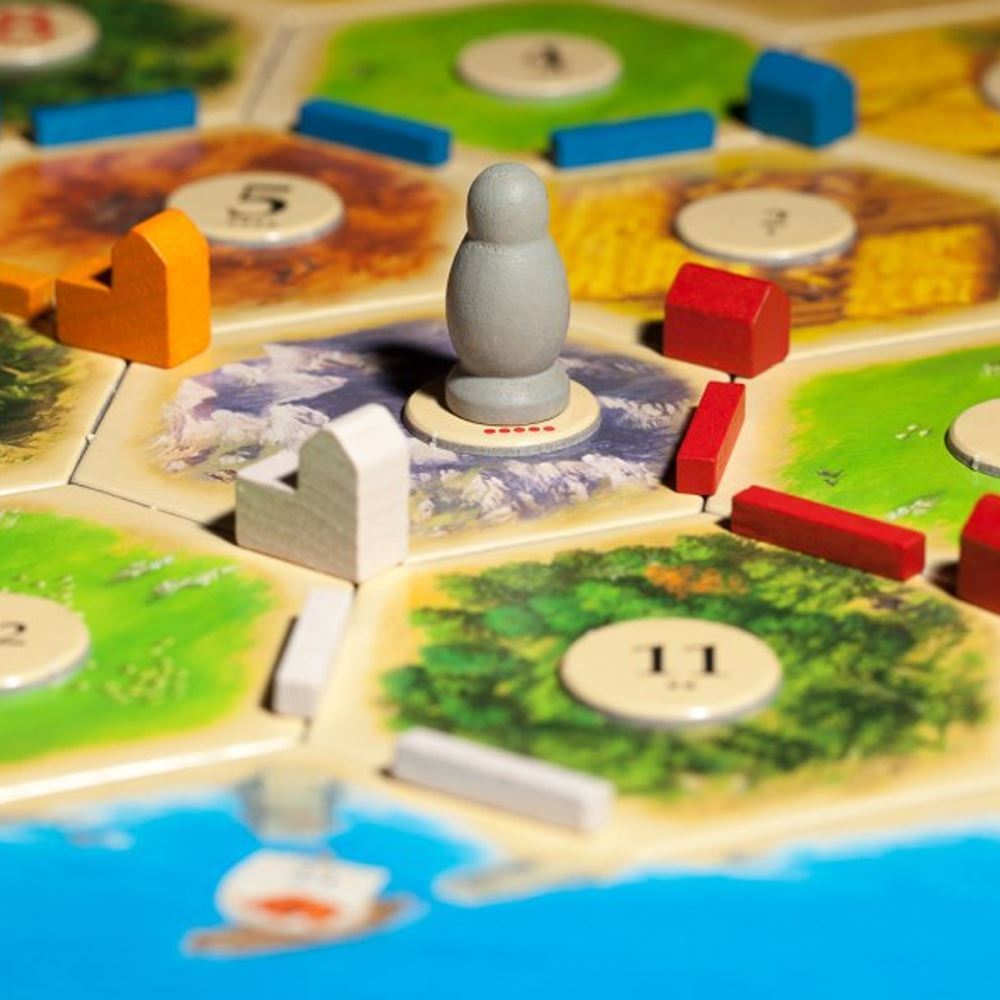I read an article this week about the rising popularity of European and particularly German board games, the so-called Eurogame.
The core difference apparently between American and German games in the past 50 years has been that American games have been centred on conflict, think Risk, Axis & Allies, Star Fleet Battles, and Victory in the Pacific. Germany for obvious reasons was not so big on these conflict-centric games but favoured games based around construction and building things up like communities (Settlers of Catan), farms (Agricola) or businesses (Power Grid).
So this article, linked below, was interesting but it also struck a bell with other things I have been reading. Fria Ligan are Swedish but there is much emphasis in Mutant:Year Zero on the collaborative building of the Ark.
Another Euro/American difference is that American games tend to eliminate players as the game progresses but Eurogames keep people involved right to the end. Tales from the Loop is build from the ground up with the presumption that the kids will not stand and fight, and die, but run away and find a different route or solution.
It may be just my perception but start up times seem to be faster in the European games. The original Iron Crown Enterprises (Rolemaster/MERP) was an American publisher and Rolemaster must have one of the most complex character creation processes known to man. In contrast the Fria Ligan way is very fast and light but at the same time construct characters using a detailed skill system created by player choice.
Maybe it is just my perception but is there a move towards role playing games being more accessible and less confrontational? Mind you, the high lights of my gaming life at totally hack and slash so who am I to tell?
Here is the original article, which is very interesting.
https://www.theatlantic.com/business/archive/2018/01/german-board-games-catan/550826/


I can definitely see a few RPGs out there lately that aren’t so tightly wrapped around physical combat and death… but the other big one I can think of is FATE, where an attack is any form of confrontation, including a purely social argument. Just depends on which skill you’re using to make the attack action.
Still confrontational, but not in the sense you list for other American games (or other standard RPGs). And, it’s authored by Americans. But I think it’s hard to truly generalize with the RPGs as it is compared to board games. There’s definitely trends in Eurogames away from needless complexity, which is the opposite that I usually see in American games. But I don’t see any true common thread there with European vs American RPGs. Less complexity seems to me to come from both sides of the Atlantic … as do complex RPGs.
I agree, I was just curious as to whether we are going to see more of this trend filter into RPGs in the future.
One big characteristic of nearly any Eurogame is that it’s not as open-ended in how long it plays as some American ones. There’s no long tedious endgame with most of the players eliminated as can happen with Monopoly (a US game that isn’t conflict) or Risk, say. That’s perhaps less obviously adaptable to RPGs, though I think it’s not a bad thing to keep in mind when planning adventures – Paizo’s Adventure Paths seem popular enough, and early D&D certainly seemed to assume that ‘Name Level’ was a time to retire a character. The are Eurogames with player elimination, but those tend to be short and immediately replayable.
This management of time and the ‘keeping people involved’ aspect are probably the most significant things that RPGs often forget. D&D is a classic example, 3e for instance where eliminating players from large parts of play or making their involvement far less significant is/was common, 4e having the long combats that don’t end satisfactorily when they’re won but instead grind down slowly – something GMs should remember.
I cannot comment on D&D but with Rolemaster, character death is a real pain due to the time required to create a new one. The are not simply rolled up, they are crafted.